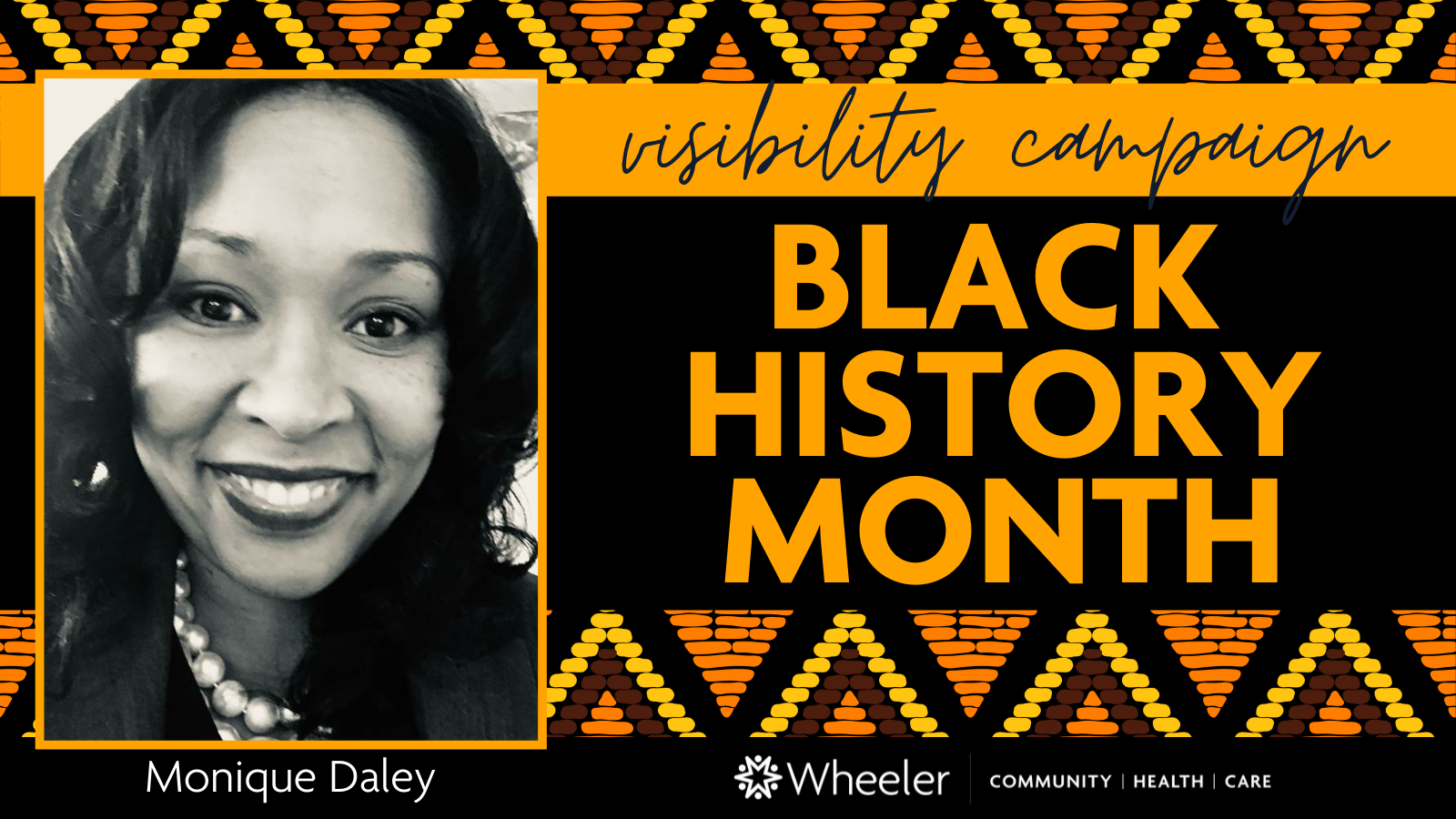Black History Month Visibility Campaign: Monique Daley, MS

Throughout Black History Month, we are spotlighting our Black staff through our Visibility Campaign series, as well as our staff who have a passion for support and advocacy. Today's spotlight goes to Monique Daley, MS.
Monique joined Wheeler almost two years ago as our first diversity officer. She holds a bachelor's from Western Connecticut State University, a master’s from Central Connecticut State University and is currently pursuing a doctorate in educational leadership from the University of Hartford. She is also a member of the Delta Sigma Theta Sorority, Incorporated.
How do you support your health and wellness? I support my health and wellness by seizing all opportunities to create work-life harmony, such as laugh therapy, daily affirmations, exercising, living a vegan lifestyle, flexible thinking, and defining my own peace.
How can employers support the health and wellness of their staff; specifically Black staff? Employers can support Black employees by understanding the additional burdens experienced by Black staff due to systemic racism. Therefore, it is crucial to have diverse initiatives and space for challenging yet healing conversations. At Wheeler, we are making a conscious effort to diversify our employee assistance program, address mindfulness, recruit and retain a diverse workforce, examine our policies and practices, build our diversity teams, and create engagement opportunities for all staff.
Why is it important to address racism as a public health issue? Addressing racism through this lens is decades overdue. Structural systems to keep individuals and communities healthy can negligently say they provide equal and equitable access to all, however, both history and the everyday experience of people of color demonstrates that this is false.
How can healthcare organizations and providers address the racial inequities in healthcare? Health care organizations and providers can address inequities in care by examining their internal structure and processes to identify and rectify barriers to care. At Wheeler, adhering to the Culturally and Linguistically Appropriate Services is one step in bringing equity to health by addressing existing disparities. As an organization with an investment in the health of the communities we serve, it is within our mission to provide equitable care to decrease health disparities.
What are the most significant challenges that Black communities face today in achieving health equity? Black communities face systemic racism, lack of valid representation in research, medical textbooks, health information services, and culturally competent providers.
Thank you, Monique, for sharing your story!





